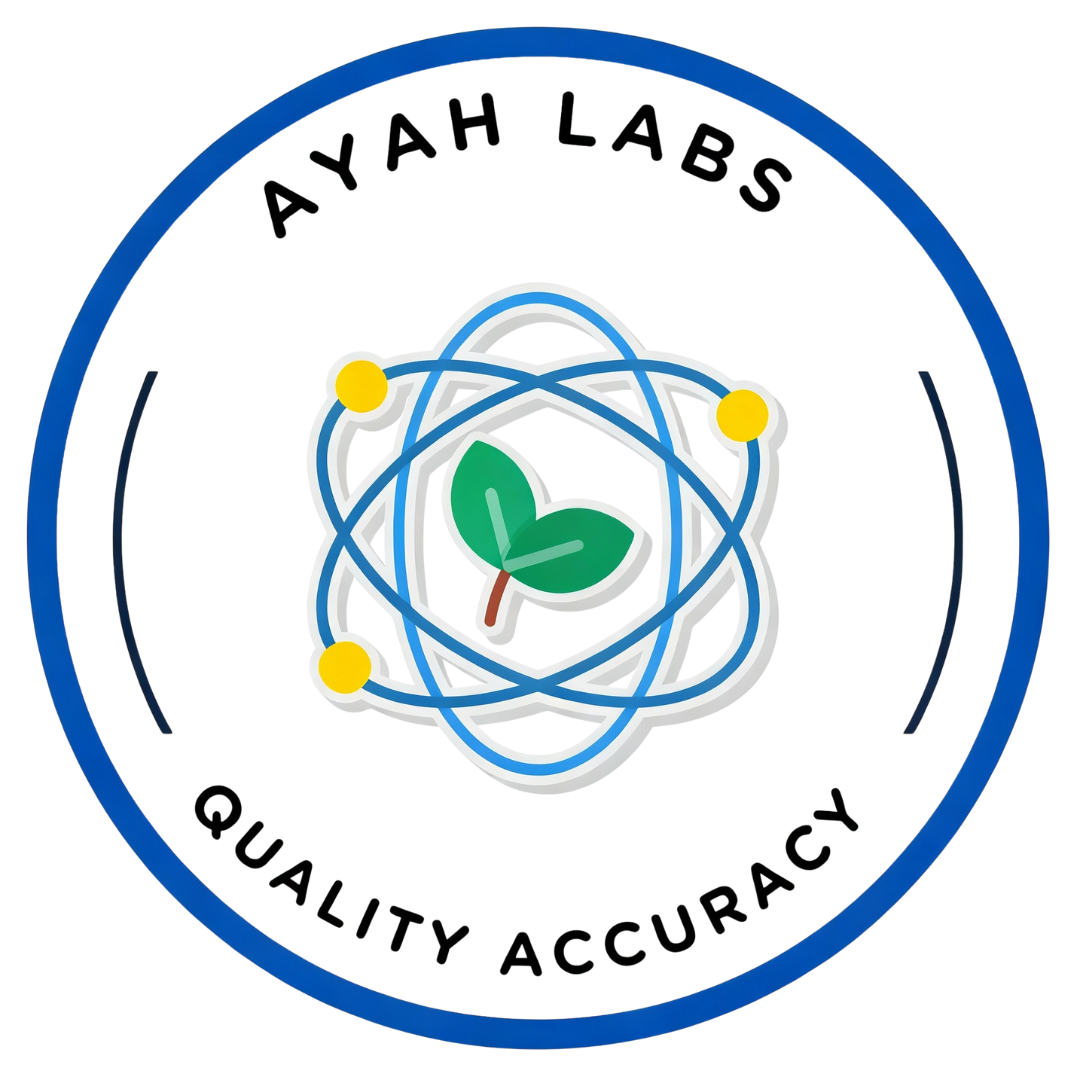
Heavy Metal Testing for Safe, Compliant Products
Heavy metal contamination threatens your product and your brand. At Ayah Labs, we deliver precise, multi-element analysis for supplements, botanicals, cosmetics, and functional foods. Every result is backed by validated science and regulatory-aligned methods to help you meet safety thresholds and global compliance standards.
Why Testing for Heavy Metals Matters
Heavy metals are a serious concern across consumer health industries, from supplements to skincare. Testing ensures your products stay within regulated safety thresholds and meet retailer and export requirements.
How contamination happens
Heavy metals like lead, arsenic, cadmium, and mercury can enter your supply chain through contaminated soil, water sources, or raw materials. They may also leach from manufacturing equipment, packaging materials, or improper storage.
The health risks of exposure
Even at low levels, heavy metal exposure is linked to neurological damage, kidney stress, reproductive harm, and developmental disorders—especially with chronic intake or topical absorption.
What regulators and retailers expect
Governments across the U.S., Canada, EU, and Asia enforce maximum allowable limits. Platforms like Amazon and major retail chains also require lab reports to confirm that your product is safe and compliant before launch or restock.
Why every product category is at risk
From herbal capsules and powdered superfoods to color cosmetics and wellness drinks, contamination risks don’t discriminate. Testing is the only way to know if you’re within limits—and the only way to prove it.
Metals We Commonly Test For
Our elemental analysis covers a wide spectrum of metals that pose safety, labeling, and regulatory concerns. Whether you’re responding to Prop 65 thresholds or prepping for EU export, we match our panels to your needs.
Lead and cadmium for supplement and Prop 65 compliance
These metals are tightly regulated across markets, particularly in botanicals and mineral-rich ingredients. Even trace amounts can trigger warnings or batch rejection.
Arsenic and mercury for food and botanical blends
We test both total and inorganic arsenic, as well as various mercury species, helping you stay compliant with Codex, FDA, and Prop 65 guidelines.
Nickel, chromium, and cobalt in color cosmetics
Often found in pigments and raw minerals, these metals are critical to test for eye and skin contact safety, as well as for international cosmetic standards.
Nutritional metals like copper and zinc for labeling accuracy
When these are claimed on supplement labels, we verify levels for consistency and compliance with nutritional panel requirements.
Custom panels for regional or brand-specific requirements
Need results for a specific retailer or country? We tailor panels for Canada, the EU, GCC, and Asia-Pacific regions.
Our Testing Methods and Technology
Accurate testing requires the right instruments and the right approach. We use a combination of advanced techniques to deliver reliable results across a wide range of product formats.
ICP-MS for ultra-trace multi-metal analysis
This gold-standard method detects heavy metals at parts-per-billion (ppb) levels with high sensitivity, ideal for supplements and sensitive formulations.
ICP-OES for high-load or matrix-heavy products
This method is suited for more complex or concentrated samples, such as emulsions, syrups, or fortified powders.
AAS and CV-AAS for targeted metal quantification
Used for single-element assays and sensitive mercury testing, these approaches are efficient for validation or label claims.
Speciation for arsenic and mercury variants
We provide speciation testing when total metals aren't enough—critical for understanding toxic vs. non-toxic forms in regulatory review.
Regulatory Frameworks We Support
Our testing services are designed to align with national and global safety requirements so your results stand up under scrutiny.
- USP <232>/<233> – Elemental impurities in dietary supplements
- FDA 21 CFR Part 111 – cGMP standards for supplement manufacturing
- California Proposition 65 – Warning levels for listed toxic metals
- NSF/ANSI 173 – Supplement certification criteria
- Codex Alimentarius – International limits for food products
- EU 1881/2006 – Heavy metal thresholds for food safety
- ISO 22716 / Health Canada Hotlist – Cosmetic product regulations
We also support documentation for Amazon, private labels, and global exporters.
Who We Test For
Our heavy metals testing services support a wide range of product categories—especially those under regulatory scrutiny for contamination and consumer safety.
- Dietary supplements – herbal blends, capsules, powders, and extracts
- Functional and conventional foods – protein powders, bars, plant-based mixes
- Beverages – teas, tonics, juices, and wellness shots
- Skincare and personal care products – creams, balms, serums, and oils
- Color cosmetics – lipsticks, mineral makeup, pressed powders
- Pet health products – supplements, oral drops, and chews
- Private label and contract manufacturers – full-panel support for batch release
Why Choose Ayah Labs?
Elemental analysis is trust. We help you verify product safety with precision, speed, and clarity.
- ISO/IEC 17025–aligned testing procedures
- Flexible turnaround – standard results in 3–5 days, rush options available
- End-to-end support – from raw ingredient screening to finished goods testing
- Clear documentation – audit-ready reports tailored to your market
- Real partnership – we help you interpret the data, not just hand it over
Frequently Asked Questions
Elemental Safety Starts Here.
Heavy metal contamination doesn’t give second chances. With Ayah Labs, you get data you can trust and reports that clear the way for confident, compliant distribution.
Request Heavy Metals Testing